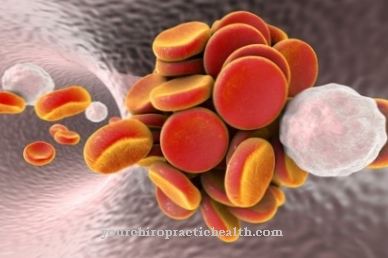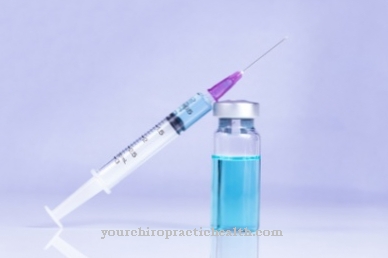Malfunction of the urinary bladder can lead to an excessive urge to urinate and the dreaded incontinence. However, paralysis of the urinary function is also possible. The patient then does not feel any need to urinate and does not feel the need to empty the bladder. Such problems can occur after surgery, but they can also be caused by acute illnesses. In severe cases it can Bethanechol be a remedy that provides relief.
What is Bethanechol?

Bethanechol is a medicinal substance and is primarily used for certain bladder diseases. Above all, this includes the so-called neurogenic bladder. A healthy urinary bladder stores the urine and empties in a coordinated and controlled manner.
This coordination is controlled by the central nervous system. If this function of the nervous system is disturbed, it is called a neurogenic bladder. Bethanechol acts on the central nervous system and on the parasympathetic nervous system, which is part of the nervous system.
The active ingredient is supposed to strengthen the effect of the parasympathetic nervous system and support the function of a healthy urinary bladder. Bethanechol can also be used for bladder atony.
Bladder atony is a paralysis of the urinary bladder wall caused by an acute disease of the central nervous system. The patient then does not feel the urge to urinate even when the bladder is full. Such an acute illness can be paraplegia, for example.
Pharmacological effect
Bethanechol acts on the parasympathetic nervous system and supports the function of a healthy urinary bladder. The bladder is controlled by the muscles and nerves of the urinary system. Nerves carry stimuli from the bladder to the brain and from there to the muscles of the urinary bladder. These muscles cause tension or relaxation, which initiates emptying of the bladder.
From a pharmacological point of view, bethanechol increases the tension in the urinary bladder muscle, the so-called detrusor. This increases the filling pressure of the bladder, resulting in a lower bladder capacity. The pressure in the bladder to empty increases.
Bethanechol thus leads to an increased emptying of the bladder if this function is disturbed by a neurogenic or an acute disease and no longer reacts and empties in the usual way. In addition to contraction of the bladder, the urethra can also contract when bethanechol is given in very high doses.
However, Bethanechol acts not only on the bladder, but on the entire activity of the digestive glands. This speeds up the transport of food through the digestive system.
Medical application & use
Bethanechol is used for diseases that require stimulation of the bladder muscle. These include the inability to empty the bladder after an operation due to paralysis of the urinary bladder muscle.
This paralysis can also be caused by a serious acute illness such as paraplegia. A neurogenic disorder of the detrusor may also require administration of bethanechol. Bethanechol is not permitted in the event of impending or acute constipation.
The active ingredient is administered in tablet form. These medications require a prescription and may only be taken as directed by a doctor and under medical supervision. Bethanechol can only be taken orally, the dosage can be increased slowly and continuously if the doctor deems it necessary. However, its use is fraught with potential side effects, which can be observed in any case.
Risks & side effects
The most common side effects observed include changes in heart rate and an increased response in the bronchial muscles.
In particular, patients with an existing asthma disease react with a strong contraction of the bronchi and with a correspondingly violent cough. A reduced tidal volume can also be a consequence of taking bethanechol if a previous asthmatic illness is known.
In healthy patients and at normal doses, the active ingredient can cause a brief drop in blood pressure. An increased flow of tears and saliva has also been observed in medical practice.
Bethanechol, on the other hand, has only minor effects on the skeletal muscles. Bones and the musculoskeletal system should therefore not be affected by undesirable side effects in largely healthy patients.












.jpg)



.jpg)










.jpg)
